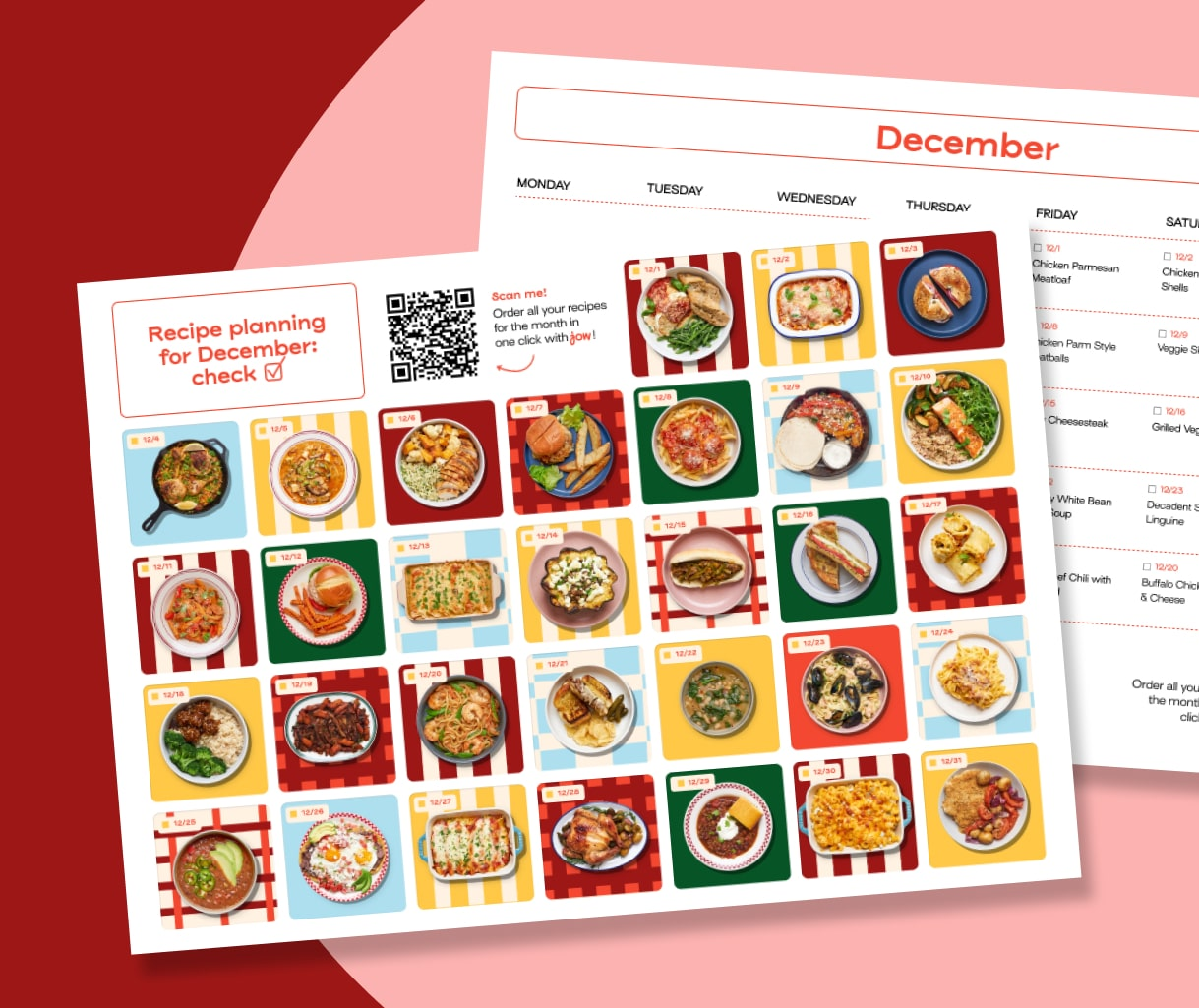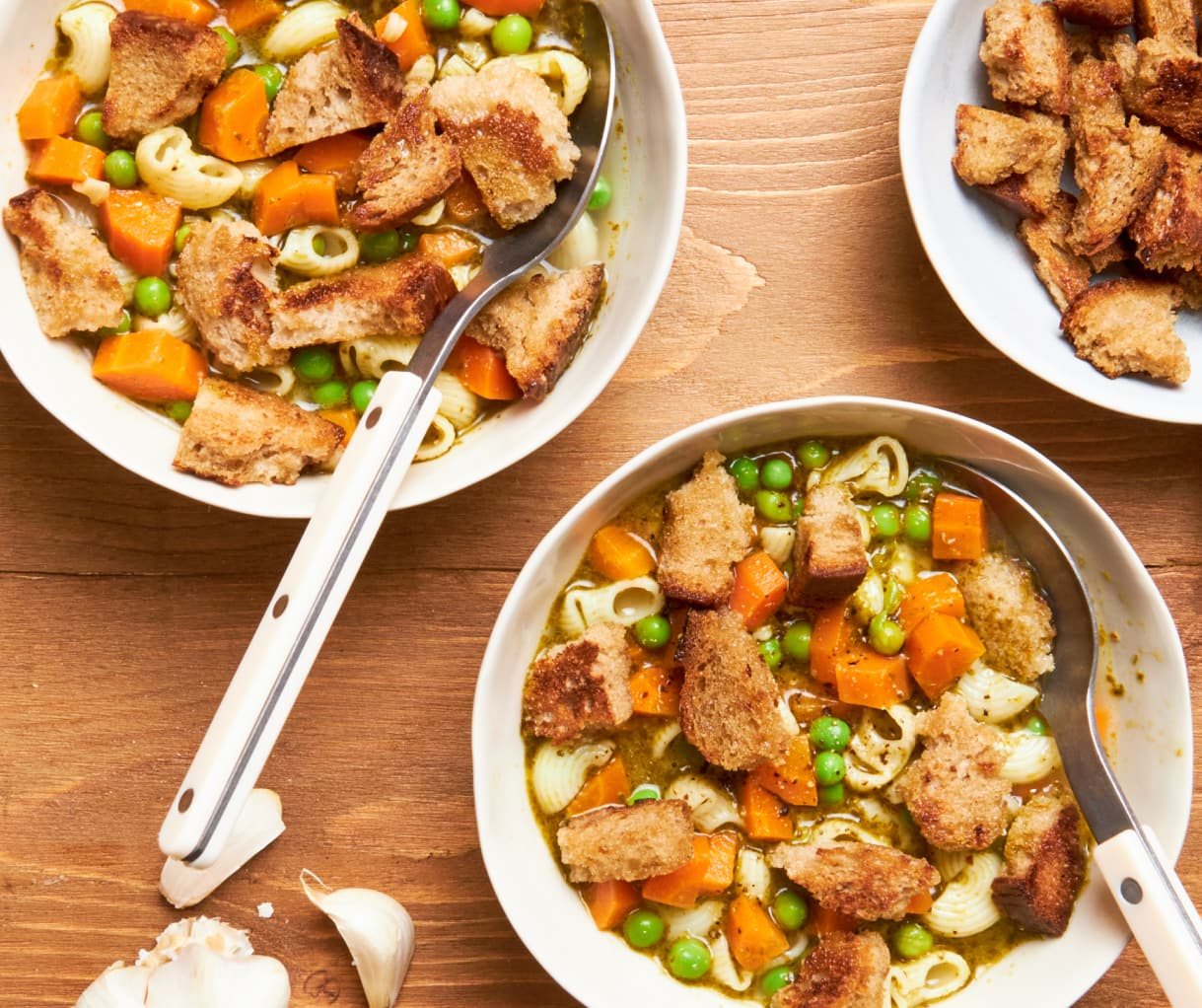Explore Jow Questions for Meal Planning
-
What Are Low-Cost Breakfast Ideas for Meal Planning On a Budget?
-
Tips for Meal Planning for Vegetarian Families
-
The 40-30-30 Macro Meal Plan: Balanced or Just Hype?
-
Ideas for Satisifying, Low-Carb Meals
-
How to Put Together a Nutritious Meal Plan for the Family?
-
How to Make a Monthly Meal Plan for My Family?
-
How Do I Plan an Affordable High-Protein Meal for Weight Gain?
-
How Do I Make an Affordable Weekly Meal Plan?
-
What Are the Top Family Meal Planning Tips?
-
How Do I Plan a Balanced Meal That Tastes Great?
-
Effective Meal Planning Techniques for the Family
-
Affordable Meal Plan Ideas
Jow's Best Meal Planning Strategies: A Guide
What is Meal Planning?

Meal planning is the process of organizing meals for a set period, typically a week or a month. It involves selecting recipes, creating a grocery list, and purchasing necessary ingredients in advance. The goal of meal planning is to streamline the cooking process, reduce food waste, and ensure a balanced diet. By planning meals, individuals can save time, manage their budget more effectively, and avoid the stress of last-minute decisions about what to eat.
Types of Meal Planning

There are several approaches to meal planning that cater to different lifestyles and preferences:
Traditional Meal Planning: This involves creating a menu for each day of the week and shopping for ingredients accordingly. It requires time for planning and preparation but offers the most control over nutritional balance and portion sizes.
Batch Cooking: In this method, large quantities of meals are prepared at once and stored for future consumption. This is ideal for individuals with limited time during the week.
Theme Night Meal Planning: Some families enjoy theme nights, like "Taco Tuesday" or "Fish Friday," which provide a framework for planning and add variety to the weekly menu.
Freezer Meal Planning: Here, meals are prepped and frozen to be cooked later. This is great for those who have sporadic schedules but still want home-cooked meals.
App-Based Meal Planning: Modern technology offers meal planning through apps like Jow, which simplifies the process by recommending personalized menus based on user preferences and dietary restrictions.
Meal Planning 101

When diving into meal planning, there are some basic steps you should consider:
Assess Your Needs: Determine the number of meals you need to prepare, considering your household size and schedule.
Choose Your Recipes: Select recipes that fit your dietary preferences and those of your family, while also being mindful of the time and equipment required.
Make a Grocery List: List all the ingredients you'll need for your chosen recipes, checking your pantry to avoid buying duplicates.
Shop Smart: Purchase your groceries while keeping an eye on sales, seasonal produce, and bulk-buying options to save money.
Prep and Store: Prepare any ingredients that can be done in advance, and store meals or meal components in a way that maintains freshness.
Flexibility is Key: Be prepared to adjust your plan as needed based on changes in your schedule or unexpected leftovers.
Why Jow for Meal Planning
Jow is the ultimate meal planning solution for busy individuals, especially moms juggling multiple responsibilities. Here's why Jow stands out:
Personalization: Jow tailors your meal plan by learning about your household size, dietary restrictions, and cooking appliances, ensuring that every recipe suggestion fits your unique needs.
Convenience: With just a few clicks, Jow recommends a personalized menu and automatically adds the ingredients to your shopping cart, along with any additional household goods you may require.
Time-Saving: Jow simplifies the entire process, allowing you to plan your weekly meals and grocery shopping in just one minute.
Flexibility: Choose between home delivery or in-store pickup from your favorite nearby store, making it easy to receive your groceries on your terms.
Enjoyable Meals: Jow helps you prepare and enjoy easy, delicious meals at home without the stress of meal prepping and grocery shopping.
By integrating seamlessly with your preferred retailers, Jow fills your cart with the products you love, transforming the chore of meal planning into a simple, enjoyable experience.
Meal Planning FAQs

What are the benefits of meal planning?
Meal planning can lead to healthier eating habits as it encourages the inclusion of a variety of foods and balanced meals. It also saves time and money by minimizing grocery trips and reducing impulse buys. By planning, you can also decrease food waste, as you'll only purchase what you need.
How do I start meal planning if I've never done it before?
Begin by assessing the needs of your household, such as how many meals you'll need and any dietary preferences. Choose a few simple recipes to start with, and create a shopping list based on these recipes. Remember to check what ingredients you already have at home to avoid unnecessary purchases.
What should I do if I have a busy schedule and can't cook every day?
You can opt for batch cooking or freezer meal planning, which allows you to prepare meals in advance during a less busy time. Alternatively, consider simple recipes with minimal preparation time or use a meal planning service that can recommend quick and easy recipes.
How can I make meal planning more affordable?
To make meal planning more affordable, look for recipes that use overlapping ingredients, purchase seasonal produce, and buy in bulk when possible. Also, take advantage of sales and discounts at your local grocery store and incorporate more plant-based meals, which can be cost-effective.
Is meal planning suitable for someone with dietary restrictions?
Absolutely, meal planning is ideal for individuals with dietary restrictions as it allows for careful selection of recipes that meet specific dietary needs. This ensures that every meal is safe and enjoyable for those with food allergies, intolerances, or other special dietary requirements.
Can meal planning help with weight loss or weight management?
Yes, meal planning can be an effective tool for weight loss or weight management as it allows for control over portion sizes and ingredients. By planning meals in advance, you can ensure they align with your nutritional goals and avoid unhealthy last-minute food choices.
How do I handle unexpected changes in my schedule when meal planning?
It's important to remain flexible with your meal planning. If an unexpected event arises, you can swap meals around, opt for quicker recipes, or even use leftovers to replace a planned meal. Having a few backup options in your pantry or freezer can also help manage these changes.
